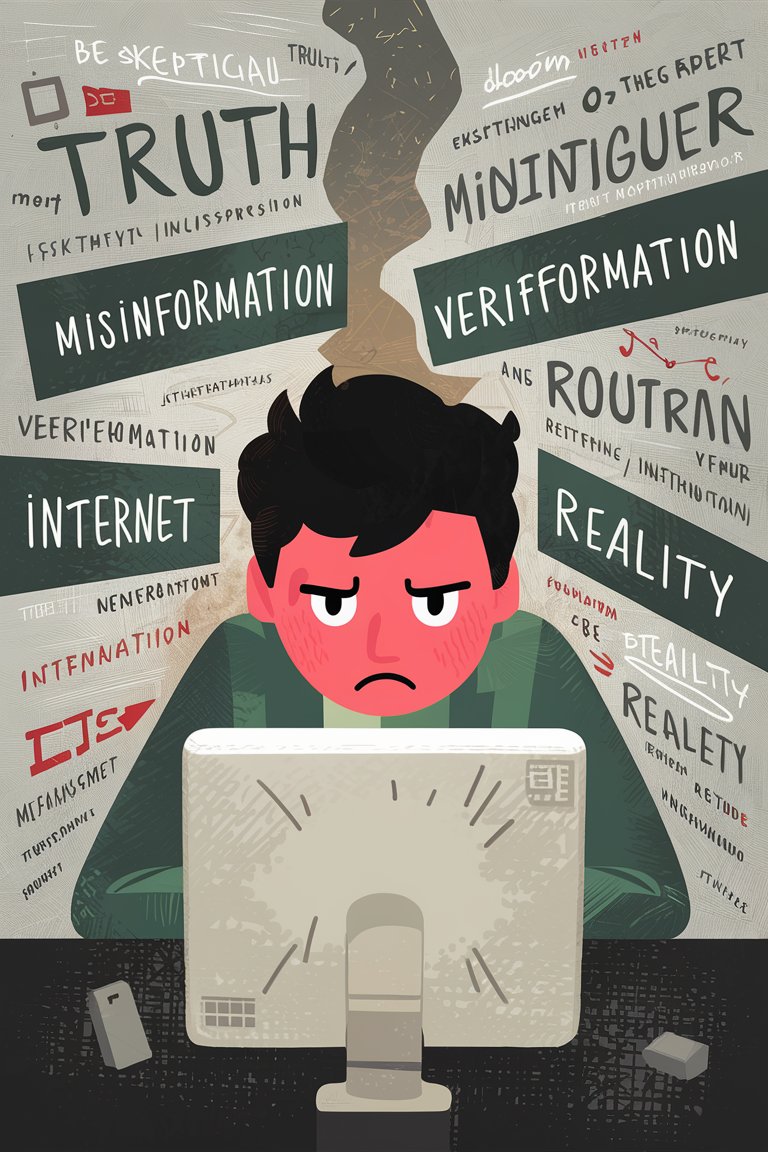Dive deeper into the topic we just explored with more practical tools and insightful resources. Delivered straight to your inbox every week.

Dive deeper into the topic we just explored with more practical tools and insightful resources. Delivered straight to your inbox every week.

Written by: Samy Madani
Reviewed by: Ayoub Hamma BEL
Can you trust what you read online? Feeling overwhelmed by the vast amount of information available online? You’re not alone! Figuring out what’s true and what’s not when you read on the internet can be a challenge, but this guide is here to help.
Whether you’re short on time or want to learn more, we’ll break things down simply and answer common questions. This will turn you into a savvy online detective, able to find reliable information with ease.

No, not everything you read online is reliable. But don’t worry, you don’t have to be suspicious of everything! Look for information from trusted sources like well-known organizations, universities, and respected news websites. These sources usually have fact-checking in place to catch any mistakes.
Reading inaccurate information can affect your health, money, and even safety. Imagine finding an article online that promotes a dangerous health tip.
If you believe it and try it, it could harm you. This is why being careful about what you read on the internet is so important.
A study in 2020 showed that exposure to false information can make it harder to tell what’s true [1].
With the immense amount of information available online, and even false claims spreading quickly on social media, it’s easy to get confused about what’s accurate.
That’s why learning how to check information is crucial in our digital world.
Here are four key things to consider when checking information online:
Are they experts? Look for information from trusted organizations like government agencies, universities, or established non-profits.
Check the website address. Reputable news websites usually end in “.com,” “.org,” or “.edu.” Be wary of strange-looking website names.
Look for author information. Do they have experience in the topic they’re writing about? Reputable sources often tell you about the author’s background.
Does it show different sides of the story? Be wary of information that seems biased or only shows one point of view.
Is there evidence? Does the information have proof like data or quotes from reliable sources to back it up?
Is it easy to understand? Reputable sources often use clear language, not confusing jargon or flashy headlines.
Don’t trust just one source, especially for controversial topics or claims that seem impossible to believe. Cross-reference the information with other reliable sources to see if they agree.
Overly dramatic language: If an article uses overblown or emotional words, be cautious.
Claims without proof: Be wary of information that makes strong statements without evidence.
Unknown or biased sources: Be careful of information from websites with strange names, or those known to have a certain point of view.
Watch out for information that tries to pull at your heartstrings (scare you, make you hopeful, etc.) instead of presenting facts.
Established organizations like the Mayo Clinic, academic journals like Nature or Science, reputable news websites like The New York Times or The BBC, and government publications are all good examples.
Look for red flags like sensationalized language, claims lacking evidence, and unknown or biased sources. Additionally, be wary of information that appeals to your emotions rather than reason.
By thinking critically and using these tips, you can become a more informed and confident consumer of information online. Ask questions, check sources, and don’t be afraid to dig deeper!
We are committed to providing our readers with high-quality, accurate, and informative content. Read more about our Editorial policy.